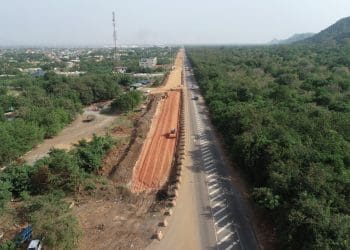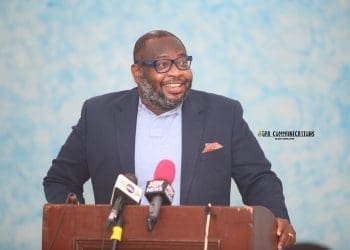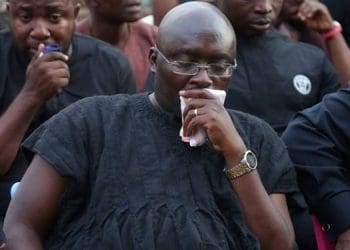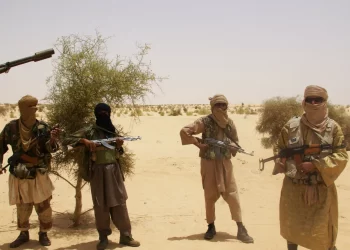The suspended Chief Justice of Ghana, Her Ladyship Justice Gertrude Torkornoo, has declared that the ongoing impeachment proceedings against her are illegal, unconstitutional, and a threat to the rule of law in Ghana.
“Every step of the removal process being undertaken against me is being done in a manner that breaks every rule on how justice is delivered in this country,” she told journalists at a press conference in Accra.
Justice system under threat
Justice Torkonoo warned that the consequences of her impeachment would not end with her removal, stressing that the precedent being set poses serious implications for all levels of Ghana’s judiciary.
“This process will affect how all High Court Justices, Justices of the Court of Appeal, Supreme Court Justices and all Chief Justices that will be appointed in the future may be removed from office,” she cautioned.
She explained that the framers of Ghana’s Constitution deliberately made the removal of certain public officials—including the Chief Justice—rigorous and insulated from political influence.
This was meant to ensure they could perform their duties without fear or favor.
Constitutional violations and Supreme Court challenge
Citing Article 146 of the Constitution, which outlines procedures for removing justices from office, Justice Torkornoo argued that the grounds for her removal must be based on incapacity to perform official functions or issues affecting national security or public order. She said none of the petitions filed against her met that threshold.
“In my case, nothing in the petitions I had received reflected weighty issues of sensitivity or national interest,” she asserted. “Indeed, all the matters had already been discussed extensively in the media before the hearings began.”
To contest what she describes as constitutional breaches and procedural irregularities, she has filed a legal challenge in the Supreme Court.
She is also demanding that the committee proceedings be held in public, rather than “in camera,” to ensure transparency.
Due process concerns and human rights allegations
Justice Torkonoo outlined what she described as a series of egregious violations by the committee hearing her case:
Legal representation denied: Her lawyer was not acknowledged in her absence.
No formal charges shared
She has not received copies of the petitions or the President’s prima facie determination.
Cross-examination denied
Petitioners Daniel Ofori and a group called Shining Stars were allowed to avoid testifying.
Emotional and physical distress
She was subjected to personal searches and denied the presence of close relatives for emotional support during proceedings.
She also accused the committee of conducting hearings in a secretive and hostile environment—Adu Lodge, a high-security zone with dark historical connotations.
Symbolic venue raises red flags
Adu Lodge, the venue for the hearings, is steeped in infamy.
It is the same location reportedly linked to the 1981 abduction and murder of three High Court judges and a retired army officer.
“The Adu Lodge facility that I am being tried in featured very prominently in the planning of the murder of judges on June 30, 1981,” Justice Torkonoo recalled.
“I have strong emotional ties with the facility and I’m certain it was chosen intentionally to emotionally distress me.”
Lack of legal foundation and procedural clarity
Justice Torkonoo said the Article 146 Committee lacks statutory backing and is not governed by a Constitutional Instrument (CI). She pointed out that:
The committee has not been conferred with the powers of a High Court.
It cannot issue subpoenas or compel witnesses.
It is not following the legal procedures laid down under CI 65, which regulates commissions of inquiry.
Instead, she claims, the proceedings are being run like ordinary litigation, with petitioners represented by private counsel directing evidence—a model she argues is alien to the legal framework for Article 146 inquiries.
A model of injustice
Making reference to the Book of Daniel, she said her legal team had been reduced to guessing the substance of the charges, likening their role to the seers of King Nebuchadnezzar’s court, who were ordered to interpret a dream without being told what it was.
“My lawyers are left to guess which allegations in the petitions I was given on 27th March 2025 are the subject matter of the testimonies that the witnesses have referred to,” she said.
Justice Torkonoo insisted that it is the “total absence of compliance with all known rules of fair hearing” that has compelled her lawyers to seek judicial review at the High Court to void the proceedings entirely.
Fear of secret evidence and hidden charges
She expressed deep concern that since the hearings are not public, the Committee could spring surprise allegations unknown to her and base a removal recommendation on them—violating the tenets of due process and transparency.
“We could reach the end of proceedings with the evidence showing that every allegation in the petitions is unfounded, yet the Committee can dig up some allegation from a document unknown to me and purport to enter a recommendation for my removal,” she said.
Not fighting for position, but for justice
Justice Torkonoo was emphatic that she is not clinging to power or office.
“The situation I have been confronted with has shown me a model of injustice that I would never have thought possible if I had not been exposed to it,” she said.
“Despite great personal discomfort, I have decided to marshal every effort, in law and leadership, to answer to this situation.”
No option to resign or opt out
She dismissed suggestions that she could resign or voluntarily retire to avoid the proceedings.
According to her, public officials undergoing Article 146 proceedings are not allowed to “walk away.”
“No one has the authority to simply opt out of proceedings started by the State,” she said, warning that doing so could result in a default judgment and a recommendation for removal in her absence.













